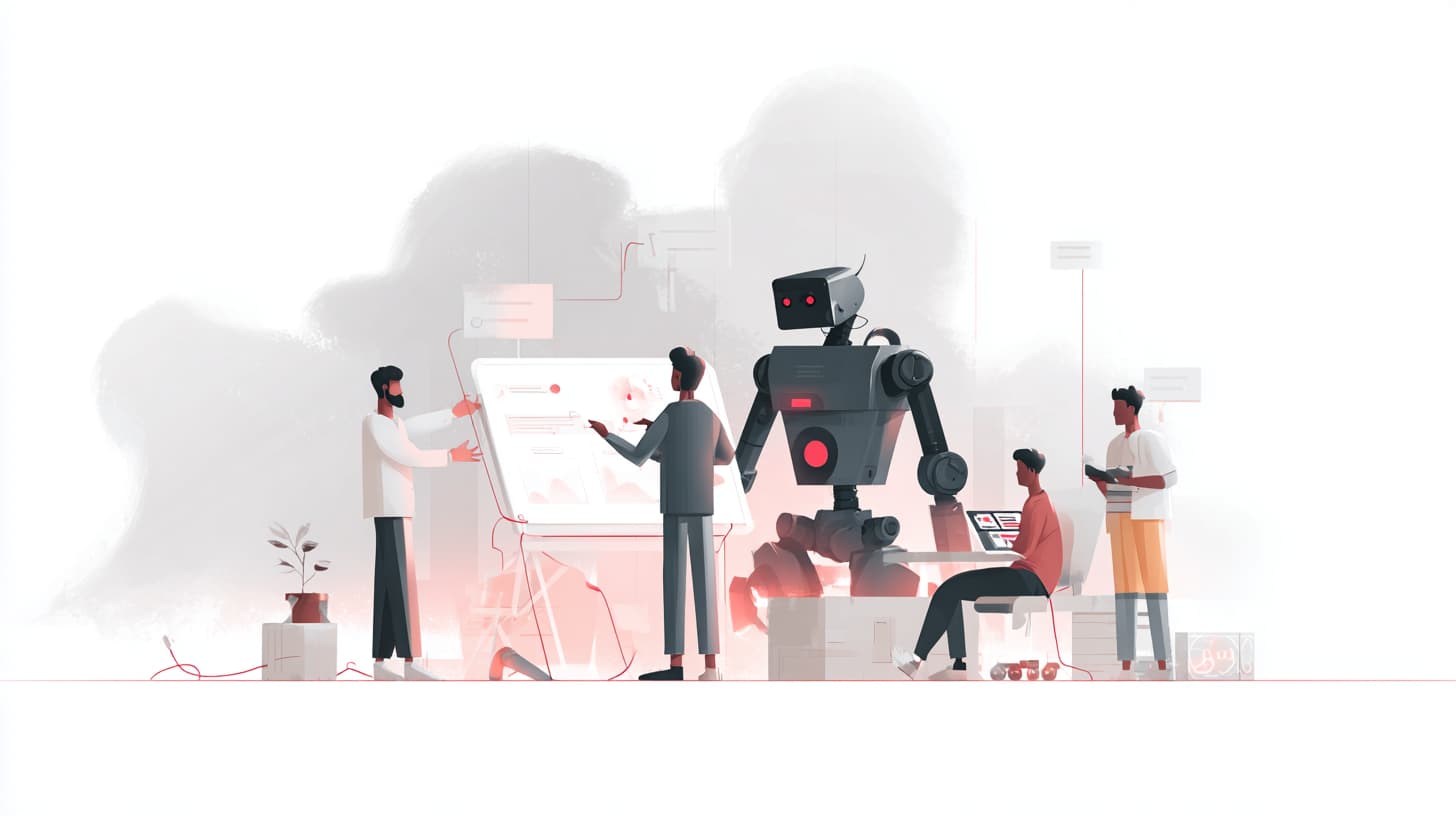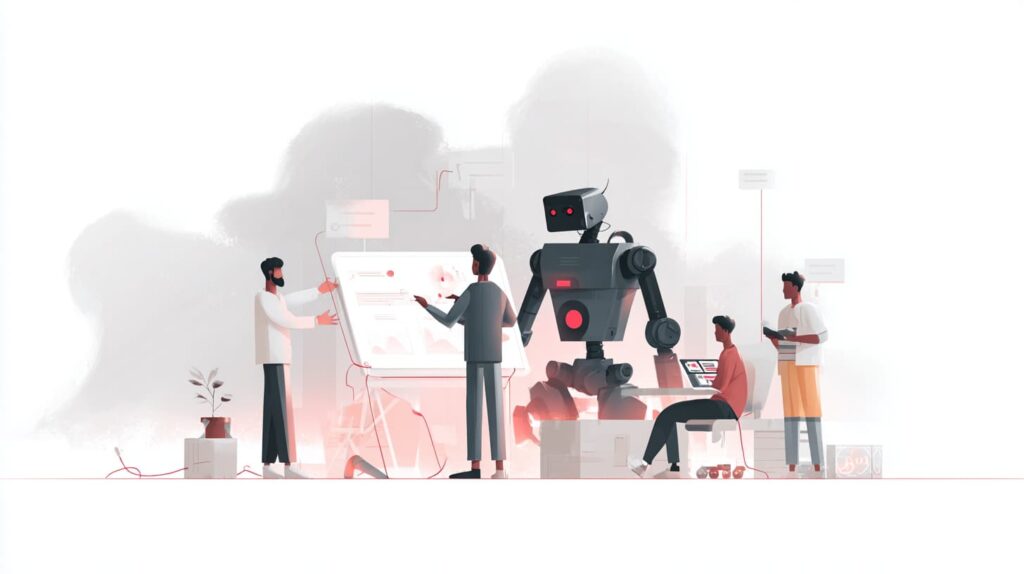By Lucas de Vivo and Marcus Couto
- An interview with Uwe Michel, partner at the German consultancy Horváth, highlights some of the main challenges in implementing AI projects within companies.
- Michel points out that the lack of change management, low internal acceptance, and even a certain cultural resistance to AI are factors that slow down the pace of adoption.
- He also shares a preview of Horváth’s upcoming global CxO priorities study.
The adoption of Artificial Intelligence technologies—both generative and analytical—continues to accelerate across organizations worldwide, redefining workflows, reshaping the skill sets required for various careers, and even transforming the role of CEOs and senior leadership when it comes to governance over AI implementation.
Even though, according to a global survey published in March 2025, only 1% of executives describe their GenAI rollouts as “mature,” 78% of companies are already using some form of AI (either analytical or generative) in at least one business function. This compares to 72% at the beginning of 2024 and 55% in 2023.
In other words, although there is still a journey toward maturity, AI is already significantly transforming workflows and governance structures within organizations. This perspective is echoed in the insights shared by Uwe Michel, partner at the German consultancy Horváth and Chairman of the Board at Cordence Worldwide, during his interview with EloInsights at the Cordence Executive Meeting.
The event, held on May 6–7, 2025, in Rio de Janeiro, brought together around 20 senior executives from 9 global management consulting firms to exchange experiences and future visions. The goal was to further strengthen the alliance’s technical, methodological, and strategic capabilities — and, consequently, deliver even greater value to our clients.
On that occasion, Michel shared his views on the impact of AI on the consulting industry and business in general, discussed the cultural resistance this technology sometimes faces, and gave a few “spoilers” about the upcoming edition of Horváth’s annual study on global CxO priorities. Check out the full conversation below.
EloInsights: What is the importance of an event like the Cordence Executive Meeting hosted by EloGroup in Rio de Janeiro?
Uwe Michel: The importance lies in the people. What truly matters is the opportunity for in-person interaction among representatives of the Cordence Worldwide member firms, strengthening existing relationships and building new connections — especially with the new members attending this Executive Meeting. It is a valuable opportunity to nurture the network and build trust for future collaborations.
In your view, what are the main drivers of transformation in the consulting market today?
It’s a big question, but the answer is straightforward: technology — especially Artificial Intelligence. AI is increasingly replacing tasks that have traditionally been performed by human consultants. Firms that can leverage technology in a differentiated way will boost their competitiveness and stay ahead of the curve.
As a result, we will likely see an acceleration in the consolidation of the sector. Many firms — especially smaller ones — may disappear. The scenario outlined in the 2013 article “Consulting on the Cusp of Disruption” has not fully materialized yet, but it is now on the verge of happening. [The article, published in the Harvard Business Review in 2013 by Clayton Christensen, Dina Wang, and Derek van Bever, applies the theory of disruptive innovation to the management consulting industry. The authors argued that the market was on the brink of major transformation with the emergence of new players offering more affordable services enabled by new technologies. Now, with generative AI, this trend is expected to accelerate even further.]
What do Horváth’s studies tell us about the current state of AI capability implementation within companies?
AI has gained even more momentum since the previous edition of Horváth’s study. What we are seeing now is that companies are moving beyond the testing and pilot phases and advancing toward broader implementations. However, the biggest challenge is not technological — it is organizational. There is a lack of change management, low internal acceptance, and even a certain degree of cultural resistance to AI, which ultimately slows down the pace of adoption.
What can we expect from the upcoming edition of the annual global CxO priorities study? Can you share any spoilers?
The study is still in the data collection phase, but some signals are already emerging. In the short term, we’re seeing that companies have become more “crisis-tested.” Even in the face of geopolitical events — such as tensions in the U.S. or conflicts in the Middle East — companies are not radically changing their strategic direction. Instead, they use these events as catalysts to adjust their course and keep moving forward.
In the long term, there is a noticeable shift in focus. Companies are moving away from looking solely at megatrends and are now prioritizing investments in their own internal strengths — such as resilience, efficiency, people management, and leadership.
And how was the previous edition of the study received? What impact did it have on the market?
The previous edition was a great success. It included more than 750 interviews, resulting in over 50 publications in specialized journals and more than 600 mentions across other media outlets and TV. The reach on social media was also significant.
These insights allowed us to initiate valuable conversations with clients, which subsequently led to new projects. The study has become a powerful tool for relationship building and business development for Horváth.
LUCAS DE VIVO is a Writer for EloInsights
MARCUS COUTO is a Senior Writer and Editor for EloInsights











